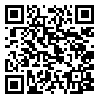Sat, Dec 20, 2025
[Archive]
Volume 9, Issue 2 (3-2019)
Iran J Ped Hematol Oncol 2019, 9(2): 66-72 |
Back to browse issues page
Download citation:
BibTeX | RIS | EndNote | Medlars | ProCite | Reference Manager | RefWorks
Send citation to:



BibTeX | RIS | EndNote | Medlars | ProCite | Reference Manager | RefWorks
Send citation to:
Tamaddoni A, Alijanpour M, Mahmoudi H, Miladi B, Bijani A, Assadollahi E et al . The incidence of hyperglycemia during the induction phase of chemotherapy in patients with acute lymphoblastic leukemia. Iran J Ped Hematol Oncol 2019; 9 (2) :66-72
URL: http://ijpho.ssu.ac.ir/article-1-421-en.html
URL: http://ijpho.ssu.ac.ir/article-1-421-en.html
Ahmad Tamaddoni 

 , Morteza Alijanpour *
, Morteza Alijanpour * 
 , Hassan Mahmoudi
, Hassan Mahmoudi 
 , Beniamin Miladi
, Beniamin Miladi 
 , Ali Bijani
, Ali Bijani 
 , Ehsan Assadollahi
, Ehsan Assadollahi 
 , Faeze Aghajanpour
, Faeze Aghajanpour 




 , Morteza Alijanpour *
, Morteza Alijanpour * 
 , Hassan Mahmoudi
, Hassan Mahmoudi 
 , Beniamin Miladi
, Beniamin Miladi 
 , Ali Bijani
, Ali Bijani 
 , Ehsan Assadollahi
, Ehsan Assadollahi 
 , Faeze Aghajanpour
, Faeze Aghajanpour 


Assistant Professor, Pediatric Endocrinologist, The Clinical Research Development Unit of Amirkola Children's Hospital, Babol University of Medical Sciences, Babol, IR Iran.
Abstract: (3305 Views)
Background: Hyperglycemia is one of the most complications of corticosteroid and asparaginase during induction phase of chemotherapy in children suffering from acute lymphoblastic leukemia (ALL).
This study was carried out to evaluate the incidence of hyperglycemia and associated risk factors during chemotherapy induction phase at Amirkola Children's Hospital.
Materials and Methods: In this cross-sectional (retrospective) study, 150 children (mean age: 79.16±42.68 months) with ALL were evaluated (2000- 2011). Hyperglycemia was described as random blood glucose level more than 200mg/dl in patients less than 2 years old. In patients older than 2 years, fasting blood glucose level more than 110-125 mg/dl was considered as impaired glucose level and fasting blood glucose level more than 126 mg/dl was defined as diabetes mellitus. The data were analyzed using SPSS (version 18) and running chi square test, pearson Ccorrelation, and logistic regression. P-values less than0.05 was considered statistically significant.
Results: Out of 150 children with ALL, 21 (14%) of them had hyperglycemia, but none of them had diabetic ketoacidosis. Hyperglycemia was significantly associated with gender (P=0.014) and age. (P=0.000) which was more likely in patients older than 10 years. The incidence of hyperglycemia was also related to BMI (P=0.000). Relapse rate for ALL was 14.7%, which was not significantly associated with hyperglycemia.
Conclusion: Hyperglycemia was common and transient during induction phase of chemotherapy and it was correlated with age, sex, and weight.
This study was carried out to evaluate the incidence of hyperglycemia and associated risk factors during chemotherapy induction phase at Amirkola Children's Hospital.
Materials and Methods: In this cross-sectional (retrospective) study, 150 children (mean age: 79.16±42.68 months) with ALL were evaluated (2000- 2011). Hyperglycemia was described as random blood glucose level more than 200mg/dl in patients less than 2 years old. In patients older than 2 years, fasting blood glucose level more than 110-125 mg/dl was considered as impaired glucose level and fasting blood glucose level more than 126 mg/dl was defined as diabetes mellitus. The data were analyzed using SPSS (version 18) and running chi square test, pearson Ccorrelation, and logistic regression. P-values less than0.05 was considered statistically significant.
Results: Out of 150 children with ALL, 21 (14%) of them had hyperglycemia, but none of them had diabetic ketoacidosis. Hyperglycemia was significantly associated with gender (P=0.014) and age. (P=0.000) which was more likely in patients older than 10 years. The incidence of hyperglycemia was also related to BMI (P=0.000). Relapse rate for ALL was 14.7%, which was not significantly associated with hyperglycemia.
Conclusion: Hyperglycemia was common and transient during induction phase of chemotherapy and it was correlated with age, sex, and weight.
Type of Study: Research |
Subject:
Heart
Received: 2018/10/17 | Accepted: 2019/03/18 | Published: 2019/03/18
Received: 2018/10/17 | Accepted: 2019/03/18 | Published: 2019/03/18
Send email to the article author
| Rights and permissions | |
 |
This work is licensed under a Creative Commons Attribution-NonCommercial 4.0 International License. |


